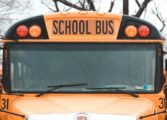Rittenhouse said a staff liaison would not have access to confidential information, and should be provided Board materials in advance of meetings, just as the student liaison is provided those materials.
School Board member Carol Tracy Carr of the Rivanna District disagreed. “Everything you have described I see being currently addressed in a number of different ways… where the staff has access to provide their opinions and their comments through participation in committees or through direct access to the Board whenever they choose to pick up the phone or send an email – so I don’t see a need for an additional layer,” she said.
“We do have some governance and laws that we have to abide by,” said Board Chair Camilla Washington of the Columbia District. “There are specific codes that speak to why student liaisons are allowed; any other group or organization that is represented – we become engaged in a partnership or agreement with. The code specifically says that in Virginia those things are not allowed.”
Washington then asked the opinion of Ed Breslauer, director of finance, who also manages the Virginia School Board Association (VSBA) policy updates for the Board. “The state made it very specific in singling out the fact that there could be a student representative,” said Breslauer. “It would seem to imply that if the state says you can do that and the School Board had the authority to do that anyway they wouldn’t have had to say it under Virginia code and case law,” he added.
“There is something also called the Dillon Rule,” Breslauer continued. “If the state doesn’t say a municipality can do it, then the municipality doesn’t have the authority to do it. The General Assembly didn’t say we can do such a thing. That is the essence of what VSBA is saying,” Breslauer concluded.
School Board Member Bertha Armstrong of the Fork Union District had questions of her own. “Has it not been a policy that if persons wish to present to the Board more than three minutes that you can ask to be on the agenda? I personally don’t feel that we have rejected any presentations from anyone who wanted to make a presentation,” Armstrong said. “Do you know of any other areas that have a staff member on the Board?”
“From the research that I have done I felt strongly that we had the law behind us,” said Carr, “but I think what further concerns me is that from the surveys results and from a lot of the discussion there has been this kind of assumption that what we have in place right now needs to be superseded; that it somehow needs to be replaced because it is not working and I would have a problem with that. I think it is working,” Carr said. “We have a process in place with the Board and with committees.
“I do agree,” Carr added, “that the three minutes rule could be limiting – but the way that we run our meeting could accommodate a delegation. It is a very slippery slope to say that we are going to look at this group and what about this group and what about this group. I think the process that we have in place is something that we should work on and improve,” stated Carr “but work within that process and within the structure that we have to make progress and move forward.”
Rittenhouse countered, “Y’all just say you love to hear what the student body has to say; I would like to hear what the staff has to say. This really is the best way to hear it,” he insisted, “right here in these meetings.”
“I do agree (the School Board meeting) is a great way to hear them,” said Washington. “If they desire a presentation, then they submit the request as a presentation. I don’t think any of us have ever said we don’t want to hear from them,” she added.
Also, the Board received an update from Assistant Superintendent Chuck Winkler about plans for work to be done to upgrade the HVAC system at Fluvanna Middle School as well as to repair the roof, replace some ceiling tiles inside the building and upgrade lighting. If funds permit, the gym will get new bleachers and bathrooms will be updated as well. Work on Phase I of the $5 million project, funded by the county, begins this summer.
Brenda Gilliam, director of curriculum and instruction, presented information to the Board about the county’s gifted program. She conceded that the county has work to do in this area; across the state an average of 16 percent of students in any district are identified as “gifted” and participate in gifted programs; in Fluvanna only around 7.25 percent are so identified.
New testing is being used to increase the numbers of students referred for gifted programs.
“We need to provide staff with additional professional development regarding gifted education,” Gilliam said. “We also need to refine the instructional delivery model to improve services offered to gifted and high achieving learners.”
In other business, the Board voted to approve the following:
VSBA Policy Updates for March;
VSBA Policy Services Agreement;
Perkins Local Plan and Budget Update;
National Diploma Issued by Fluvanna County Public Schools;
VSBA Business Honor Roll and Fluvanna County Public Schools Business Honor Roll.




